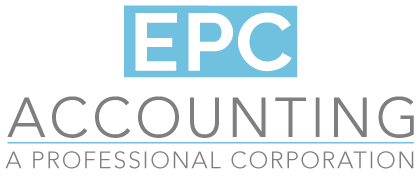If you’ve ever fallen behind on your taxes (or are currently behind), you’re not alone. Many people neglect to file on time and often, once one year has passed, it’s all too easy to let another, and another…
Over the past several years, COVID has been cited as the main reason people have fallen behind. The pandemic had a drastic effect on many people, who had decreased work hours or lost their jobs or businesses. Some people had to take care of family members and some simply didn’t want to face the reality and file their tax returns for 2019 or 2020.
In addition to COVID, life can get in the way. There’s also the fear that someone may owe money they don’t have. However, the worst thing you can do is ignore the problem.
So what can you do if you’re behind on your taxes?
Voluntary disclosure
If you have not yet been contacted by the CRA, your first step should be filing a voluntary disclosure. This is a program that can be utilized for any outstanding tax returns, up to ten years. An important caveat: you can only do this if the CRA is unaware that you’re behind or they haven’t contacted you.
It’s a separate package you have to send to the CRA which will review the case. If you’re approved, penalties will be waived because you’re volunteering the information. Once a disclosure has been made, you are expected to remain compliant with those filings. A taxpayer isn’t allowed to use the voluntary disclosure a second time on the same matter that’s been disclosed before.
Request for relief from interest and penalties
Penalties are being accumulated on balances due for each year. In most circumstances, people have a valid reason for not filing and we can help file a request to have interest and penalties waived. The worst-case scenario is that the CRA will deny the request. The best case is that it’s approved. We’ve found that quite a bit of penalties and interest get waived if and when a valid reason has been provided for doing so.
You must first get caught up on all your missed filings and wait for the CRA to have your returns processed. Afterwards, you can make a submission for relief from interest and penalties on late-filed returns with the CRA, once you are aware of what the amount owing is due to interest and penalties.
Set up a payment plan
If you’ve already filed and owe more money than you have, you can set up a payment plan. Typically, the CRA will allow you to set up a plan over twelve months, though that may be extended to eighteen months depending on the circumstances.
It allows you to stretch out the payments for cash flow management. They add on interest for the outstanding balance, but the file isn’t sent to collections and you won’t have a lien put on your bank accounts nor have pestering calls from collection agencies.
It’s a viable option for anyone who’s uncertain or scared about the balances that they owe and allows more flexibility.
Next steps
If the CRA has already reached out to you, get your tax returns filed immediately or CRA will do it’s own assessments on the income it believes you earned and how much tax is owed. Retain the services of an accounting firm and meet with an accountant to go through the situation and figure out which tax years you’re behind and what information you need.
Of course, there will be a fee to the accountant and for some individuals, it may mean paying a retainer to ensure the accountant gets paid as they help you with the situation.
The benefit of working with an accountant is that we have the most up-to-date information about which plans the CRA offers for relief from interest and penalties.
We have worked with clients who haven’t filed their taxes for the past several years. The easiest way to get through this is one year at a time, at a pace that works best for you and starting with the years you feel most comfortable obtaining your relevant tax information for. Once you know what you information you need and where you can find it, it gets easier to catch up.
If the CRA has not yet reached out, you can take advantage of the voluntary disclosure program. You’ll have to get all the relevant tax forms filed for your specific situation and if the disclosure is accepted, the penalties that would have been assessed will be waived.
The worst-case scenario for not filing taxes is the CRA going into your bank and withdrawing the funds at their discretion. It can also send the account to collections, which will affect your credit score. Your account may also be flagged which would result in the CRA paying closer attention to your account.
Moving forward, it makes sense to keep your books up to date so filing taxes is much easier. Bookkeeping software or a bookkeeper is a good start.
If you have any questions or don’t know where to start, give us a call at 416-931-5077.

